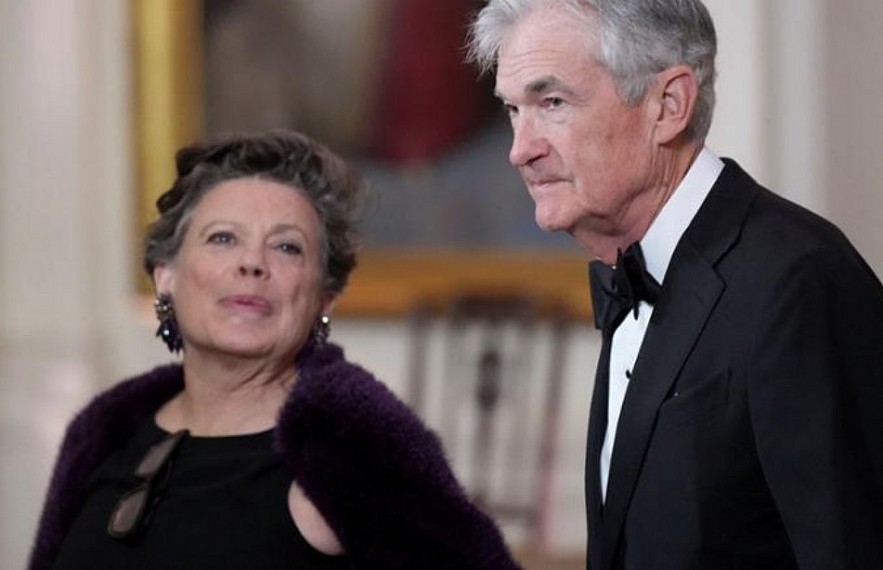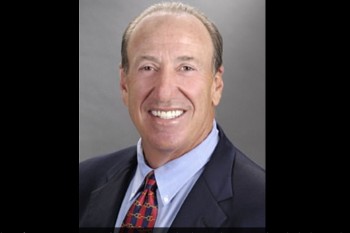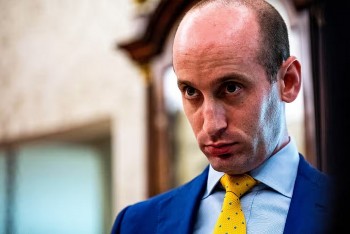Who is Jerome Powell? Biography, Family Life, Career, And Net Worth
Who is Jerome Powell?
Jerome Powell isn’t just an economist or a government official—he’s one of the most powerful voices in global finance. As Chairman of the U.S. Federal Reserve Board, Powell’s decisions influence everything from mortgage rates in Michigan to currency values in Tokyo. But who is the man behind America’s central bank?
This in-depth profile uncovers the full story: Powell’s upbringing, education, family life, career path, leadership during economic crises, net worth, public image, and what may lie ahead. We’ll also share surprising facts that reveal a more human, relatable side of this high-stakes policymaker.
 |
| Federal Reserve Chair Jerome Powell, right, and His Wife, Elissa Leonard |
10 Interesting Facts About Jerome PowellFirst non-Ph.D. Fed Chair in 40+ years Ran the Marine Corps Marathon Refused Wall Street speaking fees worth millions Reads Fed technical briefings word-for-word Is a licensed private pilot Wrote a major report on debt reduction before rejoining government Served under four U.S. Presidents Has a framed guitar in his office—he once played in a high school band Was once considered for Treasury Secretary Invested early in climate-risk financial modeling |
Early Life: Roots in Washington D.C.
Full Name: Jerome Hayden Powell
Date of Birth: February 4, 1953
Age: 72 (as of 2025)
Birthplace: Washington, D.C., USA
Jerome Powell was born and raised in Washington, D.C., at the heart of American political life. His father, Jerome Powell Sr., was a corporate lawyer, while his mother, Patricia Hayden Powell, was active in community service and church work. Growing up as one of six siblings in a Catholic family, Powell learned early lessons about discipline, service, and public responsibility.
He attended Georgetown Preparatory School, a prestigious Jesuit high school known for rigorous academics and notable alumni, including Supreme Court justices and senators.
Education: From Politics to Law and Beyond
Powell graduated from Princeton University in 1975 with a Bachelor of Arts in Politics. His senior thesis—focused on regulatory policy—hinted at his future in economic governance.
Unlike many Fed chairs, Powell did not pursue a doctorate in economics. Instead, he earned a Juris Doctor (J.D.) from Georgetown University Law Center in 1979. At Georgetown, he served as editor of the Law Journal, showcasing both intellectual rigor and editorial leadership.
Despite lacking a formal economics Ph.D., Powell has built a reputation as a self-taught expert, consuming technical papers, models, and historical data at the level of career economists.
Family Life: Grounded in Community
Powell is married to Elissa Leonard, a documentary filmmaker and civic leader with a strong presence in local government. She has served as Chair of the Board of Managers for Chevy Chase Village, an affluent suburb of Washington, D.C.
The couple has three children, all of whom have maintained private lives away from media attention.
Powell is known for his low-key personal life, his sense of duty, and a refusal to let public office interfere with family or community values.
Career Path: From Wall Street to Washington
Early Career: Legal and Financial Foundations
Powell started his career as a law clerk and attorney at prestigious law firms before shifting to investment banking. In the 1980s, he worked at Dillon, Read & Co., gaining firsthand exposure to debt markets and institutional finance.
Government Service: Treasury Department
In 1990, Powell joined the U.S. Department of the Treasury as Undersecretary for Domestic Finance under President George H. W. Bush. There, he managed debt issuance, market regulation, and financial policy. He helped resolve the Savings and Loan crisis, which foreshadowed the 2008 banking meltdown.
Private Sector: The Carlyle Group
Powell later became a partner at The Carlyle Group, one of the world’s leading private equity firms. He focused on industrial sector investments, and during this period accumulated significant personal wealth.
He also served at the Bipartisan Policy Center, where he worked on long-term fiscal reform and U.S. debt sustainability—issues he would later confront as Fed Chair.
The Federal Reserve: A Pragmatic Leader
Entry into the Fed
Powell joined the Federal Reserve Board of Governors in 2012, nominated by President Obama as a moderate Republican. His consensus-building skills and market knowledge quickly earned bipartisan respect.
Chairmanship (2018–Present)
In 2018, President Donald Trump appointed Powell as Chair of the Federal Reserve, replacing Janet Yellen. President Biden later re-nominated him in 2021, making Powell one of the few Fed Chairs to be appointed by presidents of both parties.
Major Challenges During His Term:
-
COVID-19 Pandemic (2020): Powell unleashed unprecedented stimulus—slashing interest rates, buying trillions in bonds, and supporting credit markets.
-
Post-Pandemic Inflation (2021–2023): He led the fastest interest rate hikes in decades to tame inflation, triggering debates about recession risks.
-
Bank Failures (2023): Powell stabilized markets following collapses like Silicon Valley Bank and Signature Bank, reinforcing the Fed’s emergency toolkit.
His approach is described as steady, non-ideological, and risk-aware. He is neither hawk nor dove—but a realist guided by evolving data.
Net Worth: A Wealthy but Ethical Public Servant
According to financial disclosures, Jerome Powell’s estimated net worth ranges between $20 million and $55 million. His portfolio includes diversified mutual funds, municipal bonds, and real estate—notably avoiding individual stock ownership to reduce conflicts of interest.
Powell does not accept speaking fees and follows strict Fed ethics rules, including blind trusts and divestitures where necessary.
Public Image and Communication Style
Unlike past Fed Chairs with ivory-tower reputations, Powell has cultivated a reputation for plainspoken, transparent communication. His public statements—especially during press conferences—are closely analyzed by markets.
Traits often used to describe him:
-
Pragmatic – Open to adjusting strategy based on real-world data.
-
Calm under pressure – Maintains composure during economic and political turbulence.
-
Respected across the aisle – Trusted by both Wall Street and Congress, rare in today’s polarized climate.
Future Outlook: Legacy in the Making
Powell’s current term runs through May 2026. Whether he seeks reappointment or retirement, his legacy will likely be judged by:
-
Control of inflation without triggering deep recession
-
Modernization of the Fed’s tools for digital and decentralized finance
-
Banking system resilience in the face of systemic risks
-
Political independence during increasing fiscal and partisan pressure
Some speculate that Powell may write a book or lead a think tank after leaving office. Others expect him to remain a discreet but powerful voice in economic policy long after his chairmanship ends.
Conclusion
Jerome Powell is not just a central banker; he is the steady hand behind America's economic response in times of uncertainty. Balancing markets, inflation, employment, and political pressure, Powell has proven himself a rare figure in modern public service: capable, calm, and quietly influential.
Whether you agree with his policies or not, Jerome Powell's impact on your wallet, your job prospects, and the global economy is undeniable. As long as he remains Chair of the Federal Reserve, the world will continue to watch—and listen—closely.
 Who Is Ethan Shaotran? AI Prodigy, Harvard Dropout, and Youngest DOGE Member Who Is Ethan Shaotran? AI Prodigy, Harvard Dropout, and Youngest DOGE Member Ethan Shaotran, a 22-year-old AI researcher, dropped out of Harvard to join Elon Musk’s DOGE team under the Trump administration—shaking up Washington with youthful tech ... |
 Who Is Anthony Lomangino? Trump’s Billionaire Nominee for the USPS Board of Governors Who Is Anthony Lomangino? Trump’s Billionaire Nominee for the USPS Board of Governors Donald Trump has nominated billionaire businessman Anthony Lomangino to the USPS Board of Governors, signaling a potential shift toward privatization and conservative influence over the ... |
 Who Is Stephen Miller? A Potential Successor to Mike Waltz as National Security Advisor Who Is Stephen Miller? A Potential Successor to Mike Waltz as National Security Advisor Stephen Miller, a key figure in Donald Trump’s inner circle, is a potential pick for National Security Advisor. Discover his background, career, personal life, and ... |
 Who Is Greg Abel? Warren Buffett’s Successor: Biography, Career, Family, And Net Worth Who Is Greg Abel? Warren Buffett’s Successor: Biography, Career, Family, And Net Worth Warren Buffett names Greg Abel as Berkshire Hathaway's next CEO, marking a historic leadership shift at one of America’s most influential conglomerates. Here's who Abel ... |























